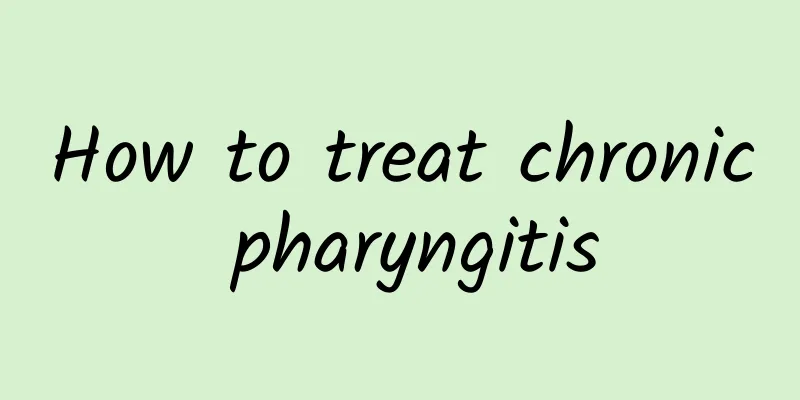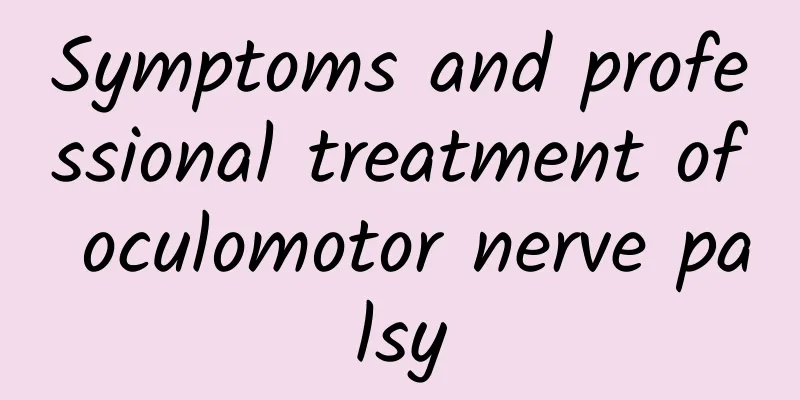Stomach discomfort and vomiting

|
Nowadays, due to the increase in social engagements, some stomach problems are becoming more and more common, especially among the younger generation. Due to unhealthy eating habits and frequent consumption of irritating foods, almost everyone has some stomach problems to a greater or lesser extent. Common symptoms include stomach pain and vomiting. Generally, if the vomiting continues until yellow water is vomited, it is basically an attack of gastroenteritis, and it is already quite serious and needs early treatment. The following editor will introduce the situation in detail. Overview of Gastroenteritis Gastroenteritis is usually caused by microbial infection, but can also be caused by chemical toxins or drugs. Typical clinical manifestations are diarrhea, nausea, vomiting and abdominal pain. In healthy adults, gastroenteritis usually causes only discomfort and inconvenience without causing serious consequences, but in seriously ill, debilitated, very young, or elderly patients it can cause life-threatening dehydration and electrolyte disturbances. Causes Infectious gastroenteritis can be caused by infection with viruses, bacteria, or parasites. Toxins and drugs can cause chemical gastroenteritis. Viral infection is the most common cause of gastroenteritis. There are many viruses that can cause gastroenteritis, the most common of which is rotavirus, followed by Norwalk virus, astrovirus and enteric adenovirus. Common routes of infection include: food (especially seafood), contaminated water sources, contact with infected people, unclean tableware, and not washing hands before eating. treat Treatment of gastroenteritis should include fasting and correction of water and electrolyte imbalance. Usually, all that is needed is bed rest and drinking plenty of fluids (such as oral rehydration salts). Even patients who are vomiting should drink as much fluid as possible. Breastfeeding infants should continue to breastfeed. If vomiting or diarrhea persists or if dehydration is severe, intravenous rehydration may be necessary. Antiemetics may be used when vomiting is severe. If diarrhea persists for more than 24 to 48 hours and there is no evidence of a more serious bacterial infection, antidiarrheal drugs may be added. Antiemetics and antidiarrheal drugs are generally not recommended for children. Because antibiotics may cause diarrhea or promote the growth of drug-resistant bacteria, they are usually not recommended even if the pathogen of gastroenteritis has been identified. However, antibiotics may be used for infections caused by certain pathogens (such as Campylobacter, Shigella, Vibrio cholerae, etc.) or for patients with traveler's diarrhea. Antibiotics are not effective for gastroenteritis caused by viral infections. Gastroenteritis caused by parasitic infections requires the use of antiparasitic drugs. |
<<: Acute gastroenteritis vomiting yellow water
>>: What to do if you have stomach pain after drinking too much ice water
Recommend
Pharmacological effects of nightshade herbal medicine
The Yeguanmen herb, also known as the cut-leaf ir...
What is the reason for urinary incontinence, weakness and inability to urinate?
We encounter many problems in our daily life, som...
What are the methods for treating high uric acid?
Uric acid is a substance in the body that basical...
Self-regulation methods for male menopausal anxiety
Men will also have certain anxiety problems when ...
Recovery from these diseases can be doubled by seeing a traditional Chinese doctor!
Unlike other countries, my country has the tradit...
How is emphysema treated?
Emphysema is also a common symptom in life, and s...
How to store wormwood
Around the Dragon Boat Festival, some people hang...
How to effectively treat typhoid fever
Typhoid fever is relatively common in clinical pr...
What is the cause of big toe pain?
The big toe bone actually refers to the bone belo...
Nin Ji An Loquat Syrup
Everyone knows that Nianzhi'an Chuanbei Loqua...
What is the best sleeping position when you are four months pregnant? What are the dangers of improper sleeping posture?
In the second half of pregnancy, because of the b...
Can I eat grapes after taking Chinese medicine?
Nowadays, people often choose to use traditional ...
The efficacy and usage of deer antler blood wine
Many people say that velvet antler has great effe...
Can I drink milk while taking Chinese medicine? What are the taboos?
There is an old saying that goes, "Medicine ...
What to eat for symptoms of low estrogen
The female body secretes estrogen, which is very ...









